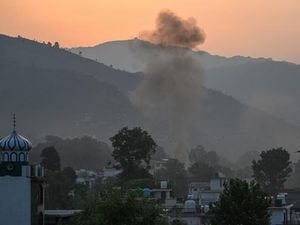The Madrid Court has officially closed the case against music producer Nacho Cano, citing a "lack of rational evidence" regarding the alleged crimes for which he was being investigated. This decision, announced on April 25, 2025, comes after the court concluded that Cano did not attempt to illegally bring young Mexicans into the country to work on his musical, Malinche.
The investigation centered around the conditions faced by interns working on Malinche. Initially, there were allegations that Cano and his collaborators had brought nearly twenty aspiring dancers to Spain under false pretenses, disguising them as tourists instead of students or workers. However, the court found that the procedures followed by the musical's team were consistent with practices commonly accepted under European Union regulations.
According to the Audiencia Provincial of Madrid, the defendants did not attempt to introduce Mexican citizens clandestinely into Spain. Instead, they followed a procedure that allows individuals to enter as tourists without a visa and subsequently apply for a student visa once in the country. This practice is recognized by EU regulations, which stipulate that individuals can enter as tourists and later seek the necessary permits.
In its ruling, the court emphasized that while the procedure used by Cano and his team may not have been the most appropriate, it did not meet the threshold for criminality under Spanish law, specifically Article 318 bis, which addresses human trafficking. The judges noted that the intent behind the interns' arrival was to obtain the necessary permits, and although these permits were ultimately denied, this was not due to their method of entry.
Additionally, the court highlighted that the interns' living and working conditions were not found to be irregular. While it acknowledged that the interns might have had slightly different schedules than typical, it clarified that this was not unusual for a musical production. The compensation provided to the interns was below the minimum wage, but the court stressed that they were not considered employees but rather individuals receiving training that could benefit their future careers.
The investigation began following a complaint from one of the interns, who reported poor working conditions and alleged that her entry into Spain, along with that of her peers, was illegal. This led to Cano's brief detention by police in July of the previous year. Since then, Cano has claimed to be a victim of state persecution due to his political support for Isabel Díaz Ayuso, the president of the Community of Madrid.
In response to the court's decision to archive the case, Cano expressed his intention to file a complaint against the presiding judge, referring to her actions as "spectacular" in a negative sense, indicating his frustration with the legal proceedings he faced.
Isabel Díaz Ayuso, who has publicly supported Cano throughout the ordeal, celebrated the court's decision. She described him as "one of the best composers and musicians in our country" and criticized those who took advantage of the situation to defame him. Ayuso remarked that the treatment Cano received resembled censorship and stated, "There have been situations that not even with the Franco dictatorship" would one expect to see.
Ayuso's comments reflect a broader concern among some political figures regarding the treatment of artists and cultural figures who express political preferences. She emphasized that such persecution is unacceptable, regardless of an individual's political stance.
In summary, the closure of the investigation into Nacho Cano signifies a significant moment not only for the producer but also for the broader discussion surrounding the treatment of cultural figures in Spain. The court's ruling highlights the complexities of immigration law and the need for clarity in the processes governing the entry of foreign nationals for educational and artistic purposes.
As the dust settles on this case, it remains to be seen how it will impact future productions involving international artists and the legal frameworks that govern their entry into Spain. The situation also raises questions about the balance between creative expression and regulatory compliance in the arts.






